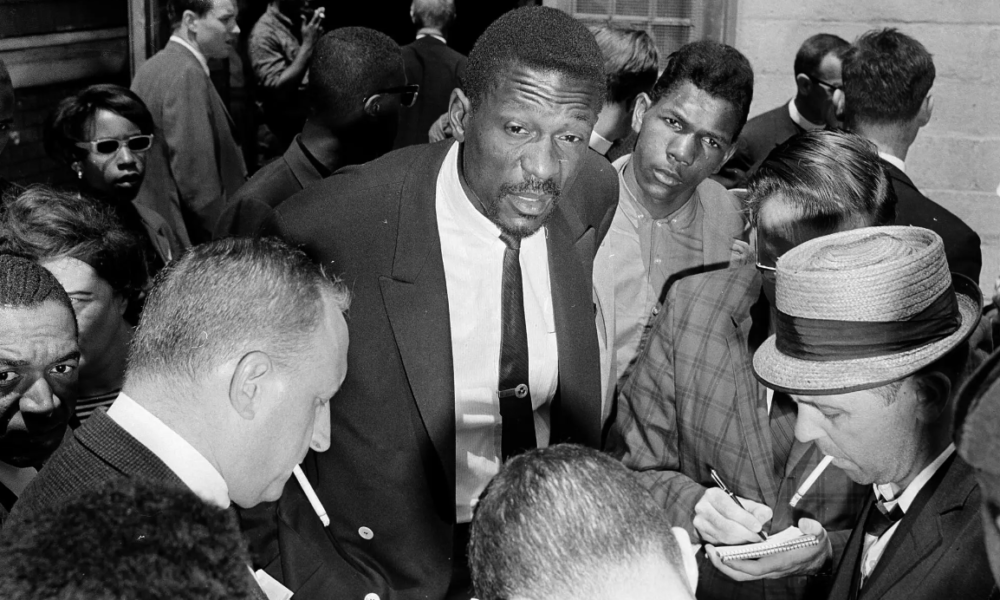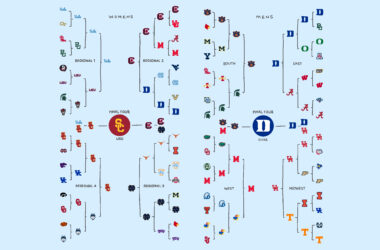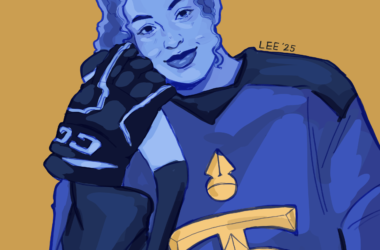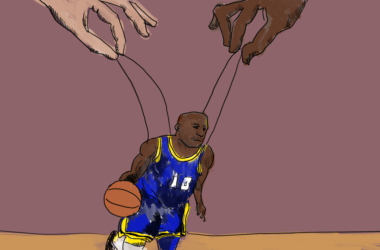From its inception, the National Basketball Association (NBA) has not only been an arena for high-flying hoopers, but also for advocates for equitable sport. The league began as an all-white initiative following the commercialization of the sport in 1946. Black athletes began to be integrated in 1950, but did not reach high levels of visibility until two Hall of Famers emerged onto the scene in Wilt Chamberlain and Bill Russell. Russell stands as one of the bastions of Black civil rights leadership, pushing for Black civil rights from his entry into the league until his recent death. His legacy as a vocal player has been adopted by many who play in the league today. Efforts within the NBA to hold each other to an equal standard of accountability, however, are lacking, especially between players.
Players have begun to harness social media and accessible sports journalism to ensure that their personal activism echoes across their platforms. What began with Russell boycotting a game to protest segregation in 1961 culminated in the NBA’s single largest boycott by its players to rally against police brutality in the summer of 2020 amidst a global pandemic.
As the league has exploded with talent and profitability, the breadth of the individual players’ voices has grown accordingly. Advocacy on grassroots levels from players across the league has demonstrated the power of individual players’ voices in realms outside of basketball: Michael Jordan showed that dominant play and off-court charisma could turn a hooper into a global icon, but players such as Chris Paul and Giannis Antetokounmpo showed that meaning behind play could turn icons into activists.
NBA players have demonstrated a willingness to advocate for equality and condemn external discrimination, whether that be supporting the Women’s National Basketball Association, taking a stand against police brutality, or supporting the economic empowerment of Black communities.
But outspoken advocacy in the NBA has historically been met with resistance, often resulting in players being blackballed from the league. In 1993, three-time NBA champion Craig Hodges handed George H. W. Bush a letter denouncing the treatment of Black communities during the Bulls’ post-championship White House visit and has not played a minute in the NBA since. In 1996, Mahmoud Adbul-Rauf boycotted the national anthem and, despite putting up career-highs in stats, was traded, cut, and denied NBA tryouts to rejoin a team.
The onus of accountability for racial, religious, or economic equality has been placed on NBA management, but rarely its own players. The NBA Players’ Association (NBPA) formed as a union to address financial inequality through their first collective bargaining agreement under Bob Cousy in 1964. In 2005, they fought David Stern and his efforts to whitewash Allen Iverson’s “ghetto realness.” The NBPA grants players representative power in many domains, but addressing discrimination from among their own is not yet at the top of their priority list.
It is no secret that the NBA has had difficulty managing forms of racial discrimination among its players. Taiwanese-American Jeremy Lin has often spoken about anti-Asian discrimination in the league, such as his experience being called a “coronavirus” on the court. Even so, it was only after his retirement that he felt comfortable speaking out. As recently as September, Timberwolves superstar Anthony Edwards broadcasted homophobic slurs on Instagram before issuing a PR-led Twitter apology. In late October, Kyrie Irving tweeted a misinformative documentary filled with anti-Semitic narratives, quickly following it up by peddling Alex Jones’s New World Order conspiracy.
On all these matters, the league’s most vocal advocates, its players, have been eerily silent. Hall of Famer Reggie Miller is one of many voices condemning such stillness, saying that players leaving such discrimination unaddressed is disappointing to many in a league built on the shoulders of activists.
An arena within which advocacy was once taboo has now become a catalyst for change, as players have begun to use the basketball-industrial complex to their advantage. Loose standards of accountability targeting only league management have tarnished such conceptions of advocacy, as a culture of discrimination remains rampant. The issue is not one of regulation, but rather education to prevent further injustices. To follow in Bill Russell’s gargantuan activist footsteps, the NBA’s players, as well as its management, must commit to the condemnation of bigotry in all its iterations, and they must begin immediately.









Pingback: The sports world cannot forget about Brittney Griner - The McGill Tribune